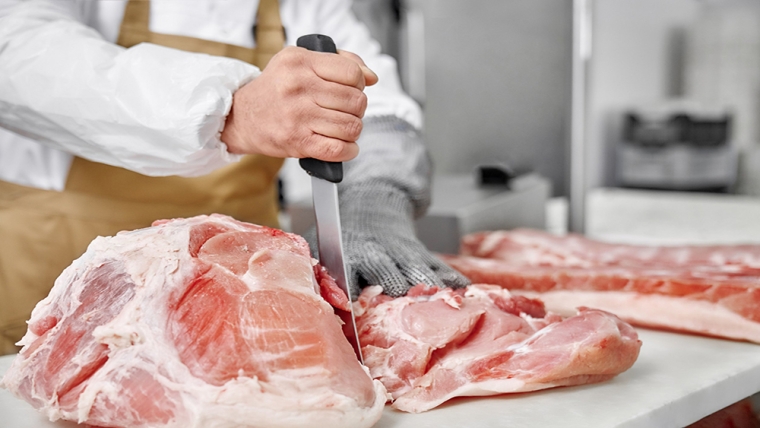
By Eric Frykberg
The New Zealand government has so far missed out on any further boost in tariffs on exports to the United States.
If an increase comes, it would add 15% to 20% to New Zealand sales to the US, on top of the 10% tariff imposed on April 2, which in turn was on top of any pre-existing tariffs.
But so far, New Zealand has not received a letter from America, over a week after the first letters went out to other nations announcing the latest wave of tariff rises from the Trump White House.
Trade officials here believe extra tariffs of 15% to 20% would be very worrying, especially to the beef trade, and so are pleased not to have had a Trump letter.
The Government here meanwhile insists New Zealand’s trade with the US is well-balanced, and says the US enjoys strong access to the New Zealand market.
In May Trade Minister Todd McClay met US Trade Representative Jamieson Greer at a gathering of APEC trade ministers, and described the meeting as constructive.
“Both parties reaffirmed the strength of the bilateral trade relationship, and the Minister was extended an invitation to Washington DC to continue discussions on deepening trade ties in the future.”
It’s not clear at this stage what effect April’s 10% rise has had on the meat trade, which has done profitable business for years selling lean beef to America’s hamburger chains. These sales have made the US this country’s best market for beef, ahead of China.
For the first month of those tariffs beef sales to the US fell but the Meat Industry Association (MIA) said then that seasonal factors were to blame, not tariffs, and sales overall were still strong.
Results for May also recorded a drop, but the MIA says this came off an extraordinarily good result for May in 2024. In volume terms, beef sales to the US were still above the average for the preceding five years.
And earnings fell far less than volumes, because of relatively good meat prices globally.
In terms of the final price for a hamburger, a 10% tariff on meat would be highly diluted by the cost of the bun and the wage and capital costs of the restaurant that sells them.
But a tariff could still affect the profitability of a meat exporter. It is a commercial secret as to what share of the tariff is met by the exporter in New Zealand and how much is paid by the importer in the US.
“Feedback from exporters suggests it’s being managed case-by-case in commercial negotiations,” McClay says.
“Some US importers have absorbed the cost, while in other cases it has been shared or passed on.”
One trade expert heard of a US importer meeting one third of the cost of the tariff and the New Zealand exporter paying two thirds, but this information could not be confirmed as tariffs and other costs are commercially sensitive to each exporting company.
The latest round of tariff rises took place on July 8 and involved letters being sent to 14 countries, including Japan and South Korea. In subsequent talks, one recipient, Indonesia, had its rated reduced. Brazil was meanwhile being hit hard, in part due to Trump’s sympathy with its populist former leader.
The Ministry of Foreign Affairs and Trade and New Zealand Trade and Enterprise are continuing to monitor developments closely, which can involve paying detailed attention to each new interview or social media post by Trump, in a quest for each new nuance.
Meanwhile, a trade official speaking off the record suggests there might be safety in numbers since several countries including Chile, Australia, Singapore and Peru are in the same predicament as New Zealand.
He adds New Zealand could benefit from Brazil’s ordeal, because it also sells beef to the United States.
3 Comments
From CNBC yesterday: "U.S. President Donald Trump on Tuesday said letters notifying smaller countries of their U.S. tariff rates would go out soon, adding that his administration would likely set a tariff of “a little over 10%” for those countries."
Like it or lump it. The USA has been a secure, rewarding and essential market for NZ grinding beef for well over 60 years. The progressive conversions in NZ to dairying has made this, even more important. Two considerations. Firstly there is no alternative market to absorb the same volume and secondly even with the tariff as it is, or even more so, the return is greater than any alternative market anyway. The author skirts around the question as to who in the end is actually paying the tariff and from the somewhat vague reference to the “commercial sensitivity” and implied variations I would wager that it is the NZ exporters footing the bill and that is entirely because of the two, above mentioned considerations.
Who foots the bill may depend on what our tariffs are compared to the countries we compete against for the specific product. For example, Brazil may take the USA on with counter tariffs, and end up getting priced out of the market, creating more demand for NZ product, increasing the price we can charge, lessening the tariff impact. Also, if we get whacked with an additional % tariff, I'm thinking the NZ$ will drop, so the impact will be less.

We welcome your comments below. If you are not already registered, please register to comment
Remember we welcome robust, respectful and insightful debate. We don't welcome abusive or defamatory comments and will de-register those repeatedly making such comments. Our current comment policy is here.